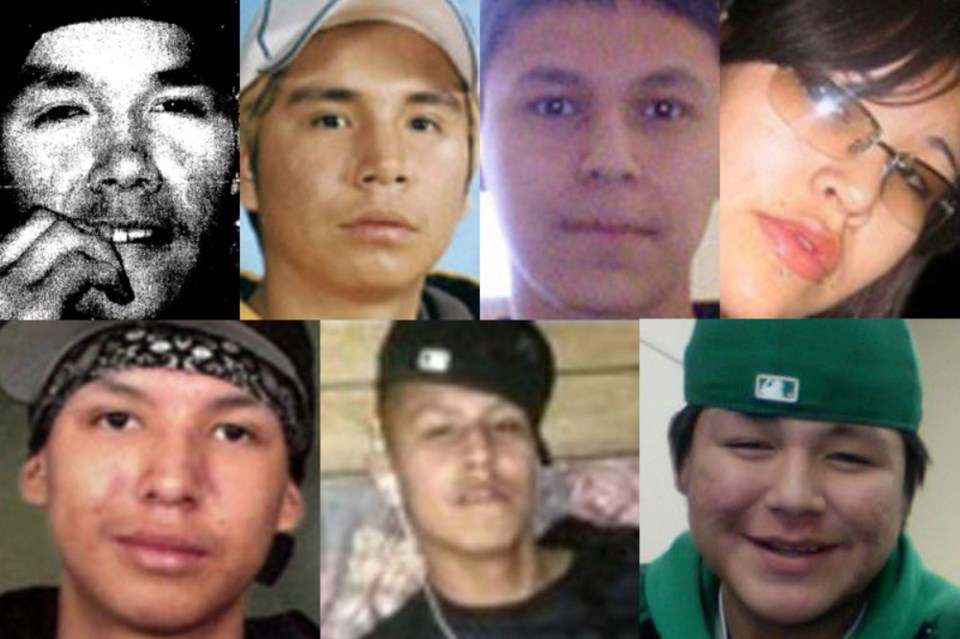THUNDER BAY – Some of the families of First Nations students who died while attending school in the city have more questions now than at the start of the coroner’s inquest examining their deaths.
The inquest, which is looking into the deaths of Jethro Anderson, Curran Strang, Paul Panacheese, Robyn Harper, Reggie Bushie, Kyle Morriseau and Jordan Wabasse, began in October and has continued for the past number of months by investigating the specific circumstances that led to each of the students’ deaths.
Lawyer Christa Big Canoe, who represents six of the seven families, said in some cases the circumstances of the cases remain unclear.
“A number of the families are feeling they have as many or more questions now than they did coming into the inquest,” Big Canoe said.
“A lot of it is what we identify as the lack of communication between various authorities and the families. They’ve learned a lot more
details in some circumstances but at the same time they’re left with a lot of questions.”
During the opening days of the proceedings, the inquest heard the cause of death was drowning in five cases with Harper dying from alcohol poising and Panacheese’s cause of death undetermined, though a hereditary heart condition is suspected.
Though foul play was not considered in any of the cases, there has been evidence that have made the families question whether there were any sinister elements that may have contributed to some of the deaths.
That’s the particularly true in the case of the 17-year-old Morriseau from Keewaywin First Nation, who was last seen alive on the night of Oct. 26, 2009.
Testimony from Thunder Bay Police Service Insp. Don Lewis detailed the three theories into Morriseau’s death, two of which involve foul play as well as the assumed theory of accidental death where Morriseau fell into the McIntyre River, and told the inquest the investigation remains open.
In addition to the original city police investigations, the OPP reinvestigated the cases in 2013.
“It would be the family’s hope that somebody from the Thunder Bay Police Service is going to sit down and take the time and go through that because the OPP had a much larger volume of interviews done around the circumstances of death than the Thunder Bay police did,” she said.
“The most cynical way to look at it is if one police force managed to find that much information how come the other one didn’t.”
The inquest is being conducted in three phases, with the first examining the specific circumstances of death, the second will cover the broader systemic and circumstantial evidence while the final phase will look at building recommendations to prevent future similar deaths.
The first phase is nearing its conclusion, with the death of the 15-year-old Wabasse from Webequie First Nation in 2011 as the final case. The question of why Wabasse was in the area of the Kaministiquia River at the James Street Swing Bridge, more than two kilometres away from his boarding home, remains unanswered.
However, any recommendations the jury makes are non-binding.
During a visit to the city last week, provincial Aboriginal Affairs Minister David Zimmer said the inquest is being followed closely by the Ontario Liberal government.
“We are very anxious to receive that report and then react...in a good way and helpful way so that sort of thing doesn’t happen again and the potential that gave rise to those very tragic events never happens again,” he said.
While the families want to know what happened to the seven students, the recommendations that come as a result of the inquest may be the most important part of the process. Many of them have younger children and are wrestling with the decision of whether to send them to Thunder Bay to further their education.
“The hope is, and the families have always taken this position, that something has to change. Things can’t remain status quo,” Big Canoe said.
